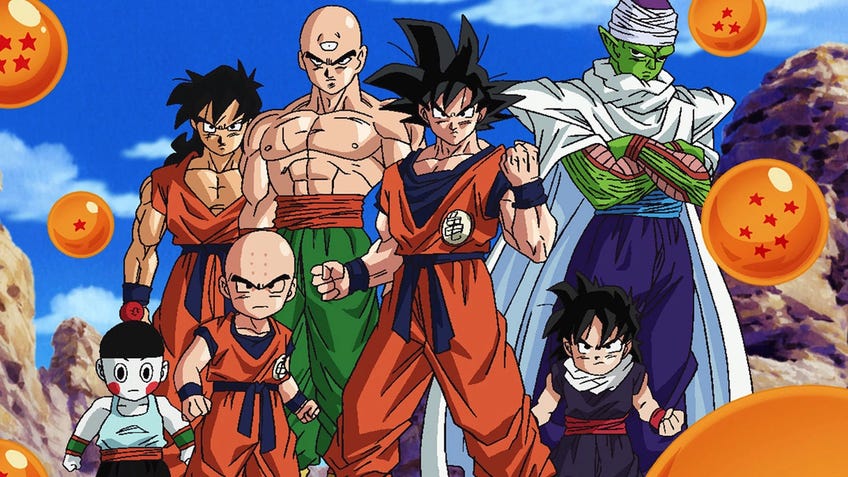Like everything else, tabletop gaming would look very different without Dragon Ball creator Akira Toriyama
The influential mangaka and iconic designer for Dragon Quest has passed away at age 68.
Akira Toriyama has died. The visionary writer and illustrator behind the Dragon Ball manga series - which found worldwide success through anime such as Dragon Ball Z - Toriyama passed away on March 1st as the result of an acute subdural hematoma. He was 68.
The widespread outpouring of grief from fellow mangaka, fans and other creators across comics, film and games in the wake of the news serves as testament to Toriyama’s indelible legacy and influence on so much of pop culture and art for the last four-plus decades. Tabletop gaming is no different.
While Toriyama himself wasn’t as direct in his work on board games, tabletop RPGs and trading card games as his prolific contributions to other media - his iconic illustrations for the many Dragon Ball instalments, video game series Dragon Quest and his eighties breakout Dr. Slump often simply being repurposed for various tie-in games based on the hit franchises - tabletop gaming would nevertheless look very different without him.
Toriyama’s signature wide-eyed, colourful character designs familiar to millions of Dragon Ball readers and viewers played no small part in video game RPG Dragon Quest establishing the ‘JRPG’ genre in 1985, with its success directly credited for the creation of the similarly long-running and influential Final Fantasy a year later. Toriyama’s timeless character and monster designs endure to this day - encapsulated in the instantly recognisable Slime - remaining largely unchanged (the crisper graphics of modern technology aside) in the series’ latest entries.
Dragon Ball and Goku in particular have become for many the first thing that comes to mind when “anime” or “manga” are uttered.
A decade later, Toriyama would collaborate with both Dragon Quest creator Yuji Horii and Final Fantasy creator Hironobu Sakaguchi on Chrono Trigger, once again contributing character designs that would help the game become acclaimed as one of the greatest video games ever made and spreading Toriyama’s influence further.
Dragon Quest and Chrono Trigger’s gameplay and visuals alike have gone on to inspire generations of game creators, including many on the tabletop, with the influence of Toriyama’s vivid, inventive artwork easy to see in the likes of recent JRPG-homaging tabletop games like Break!! and countless supplements for games such as D&D 5E that look to capture his joyous melding of fantasy, sci-fi and the real world. Of course, Final Fantasy - which very well might not exist without Dragon Quest - also has no shortage of tabletop tributes that can subsequently trace their roots all the way back.
Nothing captures Toriyama’s legacy and creative genius like Dragon Ball, his decades-spanning tale of the monkey-tailed alien Goku as he grows up into a legendary Saiyan warrior and gains the power to defend the Earth from all manner of evil-doers. Filled with breathtaking action, laugh-out-loud humour, genuine drama and unforgettable characters - not to mention Toriyama’s love of fantastic outfits and pun names - Dragon Ball and Goku in particular have become for many the first thing that comes to mind when “anime” or “manga” are uttered.
40 years after Son Goku first summoned the dragon Shenlong using the magic wish of the Dragon Balls, Toriyama’s singular characters, stories and universe full of wonder still inspire endless adoration. There are numerous Dragon Ball sequel series, dozens of films and video games, action figures, and more - without even getting into the memes.
That naturally includes tabletop games too, with individual board games based on fan-favourite fights and story arcs (along with the expected Cluedo and Monopoly spin-offs), multiple collectible card games released over the years - including the ongoing Dragon Ball Super Card Game, based on the latest manga and anime series - and even a tabletop RPG, Dragon Ball Z: The Anime Adventure Game, created by Cyberpunk 2077 designer Mike Pondsmith at the turn of the millennium.

Tabletop games based directly on Dragon Ball are one way for fans to revisit their favourite parts of Toriyama’s creation, but his creative genius can be seen spread even further in games that don’t necessarily have the glowing blonde hair of a Super Saiyan on their cover. Like almost every anime-inspired creation since, the tabletop is full of games and stories that owe a debt to Dragon Ball and Toriyama in some way.
Some are more subtle, such as the tribute to Dragon Ball referenced in fellow anime phenomenon Pokémon, which also follows a young hero on their journey to defeat a series of powerful adversaries - something that players of the TCG aspire to do in the real world- or the unspoken need of any generic ‘anime’ RPG supplement to give players the ability to tell their own shonen-style story modelled on Goku’s journey.
Like almost every anime-inspired creation since, the tabletop is full of games and stories that owe a debt to Dragon Ball and Toriyama in some way.
Others are more explicit, as anyone who’s quested across a roleplaying world with a mighty yet foolish hero slyly named after a vegetable or tsundere Vegeta-esque antihero with the same gruff delivery will know. A decade after Dungeons & Dragons, Dragon Ball laid the template that countless players would follow in their home adventures for years - and that countless more will embark on in the decades and centuries to come. Helping transport them there are designers, writers, artists and publishers who - knowingly or not - continue to share Toriyama’s near-unparalleled vision.
The sheer magnitude of Toriyama’s creativity and influence is hard to quantify. Like the greatest artists in history, including fellow late Berserk mangaka Kentaro Miura and Yu-Gi-Oh! creator Kazuki Takahashi, Toriyama’s creations don’t just appear wholesale in the works of others, whether that’s a board game in a box, a roleplaying book or a story told around a table. Instead, they inspire others to create their own memorable stories and characters. That, more than anything, will remain Toriyama’s greatest legacy for a long, long time to come - on the tabletop and far, far beyond it. We’re just lucky he gave us so much to feel inspired by to begin with. Thank you, Toriyama.

